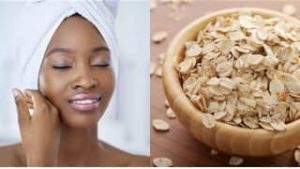Pumpkin Seeds Oil and Prostate - Benefits

Statistics have shown that nearly 90 % of men over 64 have enlarged prostate.
The increase in the volume of the prostate is called ‘benign prostatic hyperplasia’ (BPH) or adenoma of the prostate.
The presence of a large prostate fortunately has nothing to do with prostate cancer, but is a natural event related to age.
If you are a man over 40 years, it is possible that you are affected by this male health problem.
In this case, if you want a natural way to treat BPH, know that pumpkin seed oil is a potential remedy!
Symptoms Related to Enlarged Prostate
The prostate gland is a male gland between the rectum and the pubis surrounding the initial part of the urethra, the tube used to drain the urine from the bladder to the penis. A healthy prostate is about the size of a plum. It measures an average of 3 cm long and 2.5 cm wide.
When the prostate hypertrophies (i.e excessive growth of the gland), it exerts pressure on the urethra and can prevent the bladder from emptying properly.
This results in the following symptoms: dysuria (decreased force of the urinary stream and difficulty in urination), pollakiuria (frequent urination at night if necessary), an urgency (urgent need to urinate). Be aware that often BPH is not accompanied by any symptoms!
Composition Of Pumpkin Seed Oil
Also called squash, pumpkin (botanical name: Cucurbita pepo) contains seeds or flat grains of a dark green color (presence of chlorophyll). Like the cantaloupe, cucumber and squash, pumpkin belongs to the Cucurbitaceae family. The pumpkin seed oil is obtained by a cold mechanical extraction process.
Oil pumpkin seeds or pumpkin contains two essential fatty acids omega-6 and omega-3 : linoleic acid (40-60 %) and alpha-linoleic acid (5-15 %) acid. It also contains palmitic acid, stearic acid, gamma-linolenic and oleic acids.
In addition, this oil is rich in the carotenoids (beta-carotene, lutein and zeaxanthin), phytosterols, lecithin and amino acids. It also contains many minerals, trace elements and vitamins (calcium, copper, iron, magnesium, phosphorus, potassium, zinc and vitamins A, B and E).
Pumpkin Seeds Oil and Prostate – Benefits
Clinical studies have demonstrated that pumpkin seed oil is capable of reducing an enlarged prostate and improve urinary flow and emptying of the bladder.
> The carotenoids and omega-3 found in pumpkin seeds, subjected to several scientific studies to verify their beneficial effects on an enlarged prostate or benign prostatic hypertrophy. It has been observed that men who consume a high level of carotenoids in the diet have less risk of developing BPH.
> Linoleic acid plays an important role in regulating inflammatory processes.
> Zinc is found in pumpkin seed trace element that would help prevent the conversion of testosterone to dihydrotestosterone. Scientists believe indeed that excessive accumulation of dihydrotestosterone (DHT) could be a cause of enlargement of the gland.
> A clinical study with the collaboration of 45 men with BPH revealed that the following amino acids: alanine, glycine and glutamic acid, reduce most of the symptoms of the presence of an enlarged prostate. However, interestingly, pumpkin seeds contain these amino acids in large quantities.
> Phytosterols contained in the seeds of squash promote muscle tone of the urinary tract. Sterols oppose the growth of prostate tissue.
In Budapest, Hungary, researchers treated 60 patients with benign prostatic hyperplasia (BPH) with a dietary supplement containing 300 mg of pumpkin seed oil. Each daily dose was 3 capsules twice a day during the first month, then three capsules once daily for the remainder of the study.
Over 80 % of patients showed improvement of bladder function. Urine flow is increased and a reduction in the frequency of nighttime urination was observed, and the painful and difficult shock was reduced.
Pumpkin seed oil and recognized properties
As we have described, squash seed oil (or pumpkin seeds) has various therapeutic properties successfully used to naturally treat benign prostatic hyperplasia or enlarged prostate.
The French Agency for Food Safety (AFSSA) gave a positive review of the use of pumpkin seed oil to treat benign prostatic hyperplasia. This authority has indeed authorized the following claims: « Brings a natural response to urinary problems that often occur after age 50 in men » and » Improvement of urinary comfort after 90 days of treatment ».
Outside exerted on the prostate benefits oil, pumpkin seed is also used in herbal medicine as an antiparasitic agent, anti-arthritic, cholesterol and diabetes. This oil is also used to increase the production of breast milk for treating cystitis and working against the aging of the skin.
Pumpkin seed oil Cons – Warning and side effects
There are no known warnings against pumpkin seed oil. Daily taking pumpkin seed oil does not cause any side effects.
Author : Alexis ROGER
Got Prostate Problems ?
In the e-book : « Healthy Prostate« , you’ll learn:
• 12 warning signs that you may have BPH or benign prostatic hyperplasia. Page 47.
• 9 ways to minimize symptoms of benign prostatic hyperplasia, and pee normally again, without surgery. Page 49.
• « Retrograde ejaculation » is an undesirable condition in which semen, instead of coming out of the penis, works its way back into your bladder. Do you know which wildly popular prostate treatment has an 80% risk of retrograde ejaculation? Page 52.
• 7 unpleasant side effects that can result from surgery for prostate cancer. Page 67.
• The truth about PSA testing with its high rates of false positives for prostate cancer. Page 80. Plus: 15 reasons other than prostate cancer why your PSA might be abnormally high. Page 81.
• Does a vegetarian or vegan diet reduce your chances of developing a prostate problem? Here’s the inside story. Page 166.
• This simple exercise can help you strengthen your prostate, improving blood flow and removing toxins. Page 347.
Weight Loss Juice with Parsley
Brain Teaser
__________

